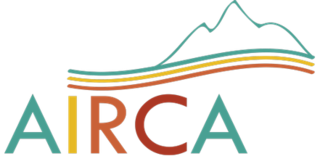The only mandated international agricultural research organization is the CGIAR The CGIAR Fund supports 15 international agricultural research centers such as the International Water Management Institute (IWMI), International Rice Research Institute (IRRI), the International Institute of Tropical Agriculture (IITA), the International Livestock Research Institute (ILRI), the International Food Policy Research Institute (IFPRI) and the Center for International Forestry Research (CIFOR) that form the CGIAR Consortium of International Agricultural Research Centers and are located in various countries worldwide (as of 2011), The centers carry out research on various agricultural commodities, livestock, fish, water, forestry, policy and management.

CGIAR is a global partnership that unites international organizations engaged in research for a food-secured future. CGIAR research is dedicated to reducing rural poverty, increasing food security, improving human health and nutrition, and ensuring sustainable management of natural resources. It is carried out by 15 centers that are members of the CGIAR Consortium, in close collaboration with hundreds of partners, including national and regional research institutes, civil society organizations, academia, development organizations, and the private sector. It does this through a network of 15 research centers known as the CGIAR Consortium of International Agricultural Research Centers. These research centers are spread around the globe, with most centers located in the Global South, at Vavilov Centers of agricultural crop genetic diversity. CGIAR research centers are generally run in partnership with other organizations, including national and regional agricultural research institutes, civil society organizations, academia, and the private sector.

The International Water Management Institute (IWMI) is a non-profit research organisation with headquarters in Colombo, Sri Lanka, and offices across Africa and Asia. Research at the Institute focuses on improving how water and land resources are managed, with the aim of underpinning food security and reducing poverty while safeguarding vital environmental processes.

The International Rice Research Institute (IRRI) is an international agricultural research and training organization with headquarters in Los Baños, Laguna in the Philippines and offices in seventeen countries with ~1,300 staff. IRRI is known for its work in developing rice varieties that contributed to the Green Revolution in the 1960s which preempted the famine in Asia.
Some other international agricultural organizations include the United Nations Food and Agriculture Organization, Global Forum on Agricultural Research (GFAR), The International Agriculture Center (Netherlands), The World Bank, International Fund for Agricultural Development, The Center for International Food and Agriculture Policy at the University of Minnesota.

The Netherlands is a country located mainly in Northwestern Europe. The European portion of the Netherlands consists of twelve provinces that border Germany to the east, Belgium to the south, and the North Sea to the northwest, with maritime borders in the North Sea with Belgium, Germany and the United Kingdom. Together with three island territories in the Caribbean Sea—Bonaire, Sint Eustatius and Saba—it forms a constituent country of the Kingdom of the Netherlands. The official language is Dutch, but a secondary official language in the province of Friesland is West Frisian.
The World Bank is an international financial institution that provides interest-free loans and grants to the governments of poorer countries for the purpose of pursuing capital projects. It comprises two institutions: the International Bank for Reconstruction and Development (IBRD), and the International Development Association (IDA). The World Bank is a component of the World Bank Group.

The International Fund for Agricultural Development is an international financial institution and a specialised agency of the United Nations dedicated to eradicating poverty and hunger in rural areas of developing countries. It was established as an international financial institution in 1977 through United Nations General Assembly Resolution 32/107 as one of the major outcomes of the 1974 World Food Conference. Seventy-five percent of the world's poor live in rural areas in developing countries, yet only 4% of official development assistance goes to agriculture.

The Center for International Forestry Research (CIFOR) is a non-profit scientific research organization that conducts research on the use and management of forests with a focus on tropical forests in developing countries. CIFOR is the forestry research center of the Consultative Group on International Agricultural Research (CGIAR), a network of 15 research centers around the world that focus on agricultural research for sustainable development, working closely with governments and other partners to help develop evidence-based solutions to problems related to sustainable agriculture and natural resource management.

The International Food Policy Research Institute (IFPRI) is an international agricultural research center founded in the early 1970s to improve the understanding of national agricultural and food policies to promote the adoption of innovations in agricultural technology. Additionally, IFPRI was meant to shed more light on the role of agricultural and rural development in the broader development pathway of a country. The mission of IFPRI is to provide research-based policy solutions that sustainably reduce poverty and end hunger and malnutrition.

The International Center for Agriculture Research in the Dry Areas (ICARDA), a member of the CGIAR, supported by the CGIAR Fund, is a non-profit agricultural research institute that aims to improve the livelihoods of the resource-poor across the world's dry areas.

The United Nations Forum on Forests (UNFF) is a high-level intergovernmental policy forum. The forum includes all United Nations Member States and Permanent Observers, the UNFF Secretariat, the Collaborative Partnership on Forests, Regional Organizations and Processes and Major Groups.
The Global Forum on Agricultural Research and Innovation (GFAR) is an inclusive global mechanism enabling all those concerned with the future of agriculture and its role in development around the world to come together and address key global needs. GFAR provides an open forum for stakeholders across the agricultural spectrum—from researchers and organizations to farmers—to participate in collaborative discussion and action around the current and future state of agriculture.

Bioversity International is a global research-for-development organization with a vision – that agricultural biodiversity nourishes people and sustains the planet. The organization delivers scientific evidence, management practices and policy options to use and safeguard agricultural biodiversity to attain global food and nutrition security, working with partners in low-income countries in different regions where agricultural biodiversity can contribute to improved nutrition, resilience, productivity and climate change adaptation.
Ghana's Ministry of Food and Agriculture (MOFA) is the government agency responsible for the development and growth of agriculture in the country. The jurisdiction does not cover the cocoa, coffee or forestry sectors.
Crops For the Future, known by its acronym CFF, is an independent international organisation with a mandate to promote and facilitate the greater use of neglected and underutilised crops for enhanced diversification of agricultural systems and human diets, particularly for the benefit of poor people in developing countries. Crops for the Future is the only such organisation exclusively dedicated to an agenda increasingly recognised as important to achieving food security in a sustainable manner and making use of local agricultural biodiversity. Crops for the Future is based in Semenyih, Malaysia, and is governed by a Board of Directors, including a representative of the Government of Malaysia.
The Regional Strategic Analysis and Knowledge Support System (ReSAKSS) was established in 2006 and compiles and analyzes information to help design and evaluate rural development strategies and monitor the progress of the Comprehensive Africa Agriculture Development Programme (CAADP). CAADP is a program of the African Union and the New Partnership for Africa's Development (NEPAD), which aims to increase the share of national budgets allocated to agriculture.
The Global Forest Information Service (GFIS) is an initiative of the Collaborative Partnership on Forests (CPF) and is a collaborative effort of 14 major forest-related international organizations, institutions and convention secretariat, aiming to maximize the value of all forest information resources and providers worldwide through the sharing of forest-related information through a single gateway.

The Association of International Research and Development Centers for Agriculture (AIRCA) is an international, non-profit alliance focused on increasing food security by supporting smallholder agriculture and rural enterprise within healthy, sustainable and climate-smart landscapes.

YPARD is an international movement made by young professionals for young professionals. YPARD operates as a network; it is not a formalized institution. With more than 15,000 members from 168 countries, this multi-stakeholder platform's main mission is to serve as a collective global network that enables young professionals to realize their full potential and contribute proactively towards innovative and sustainable agricultural development.

International Center for Biosaline Agriculture (ICBA) is an international, not-for-profit applied agricultural research center with a unique focus on marginal environments. It identifies, tests and introduces resource-efficient, climate-smart crops and technologies that are best suited to different regions affected by salinity, water scarcity and drought. Through its work, ICBA aims to improve food security, nutrition and livelihoods of resource-poor farming communities around the world.
Integrated landscape management is a way of managing a landscape that brings together multiple stakeholders, who collaborate to integrate policy and practice for their different land use objectives, with the purpose of achieving sustainable landscapes.

Global Open Data for Agriculture and Nutrition (GODAN) is an initiative that seeks to "support global efforts to make agricultural and nutritionally relevant data available, accessible, and usable for unrestricted use worldwide. The initiative focuses on building high-level policy as well as public and private institutional support for open data."

The Global Landscapes Forum (GLF) is a knowledge-led multi-stakeholder forum dedicated to promoting the landscape approach.
Between 2009 and 2012, Agriculture and Rural Development Day (ARDD) was an annual event co-organized by the Consultative Group on International Agricultural Research (CGIAR), Earth System Science Partnership (ESSP), Food and Agriculture Organization (FAO), Global Forum on Agricultural Research (GFAR), International Federation of Agricultural Producers (IFAP), and International Food Policy Research Institute (IFPRI).












